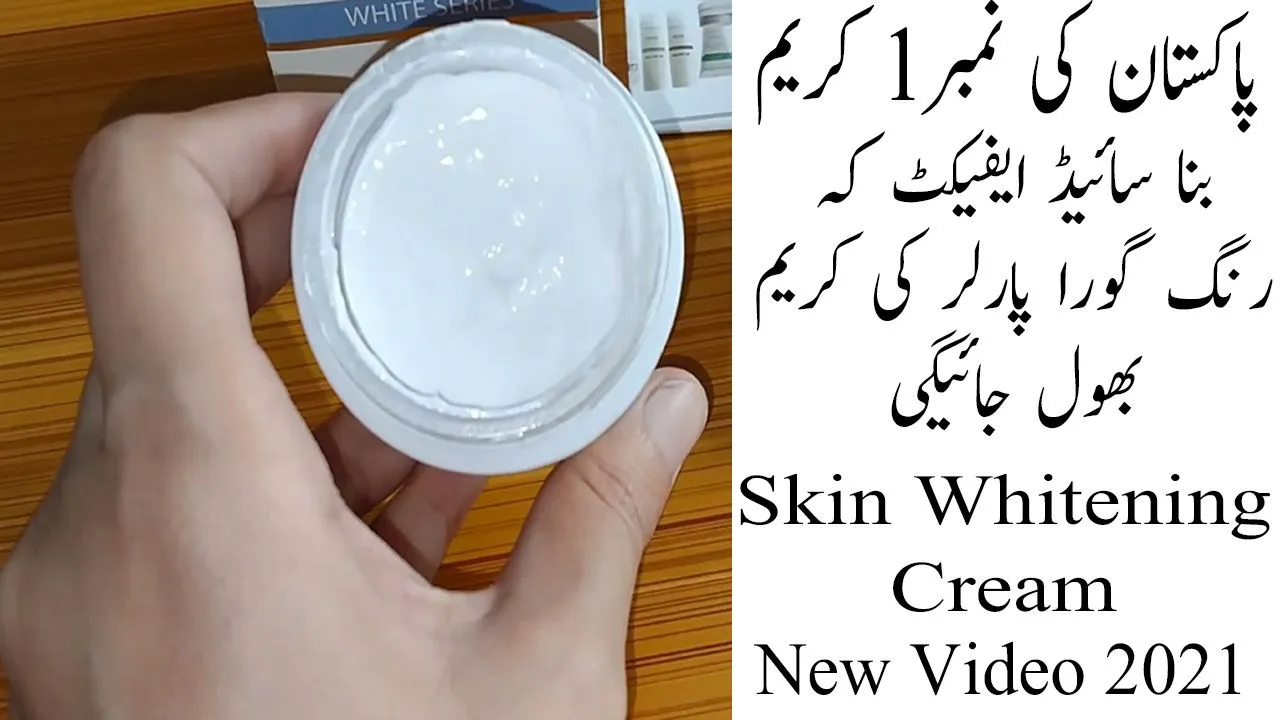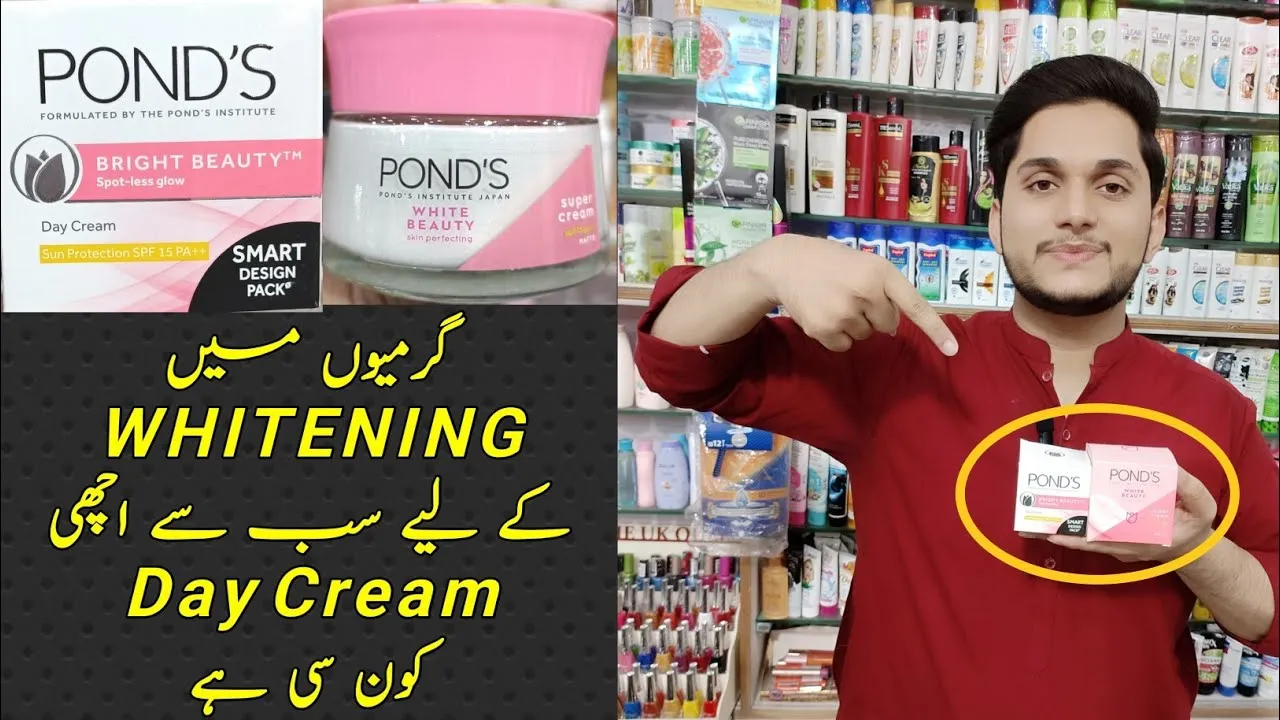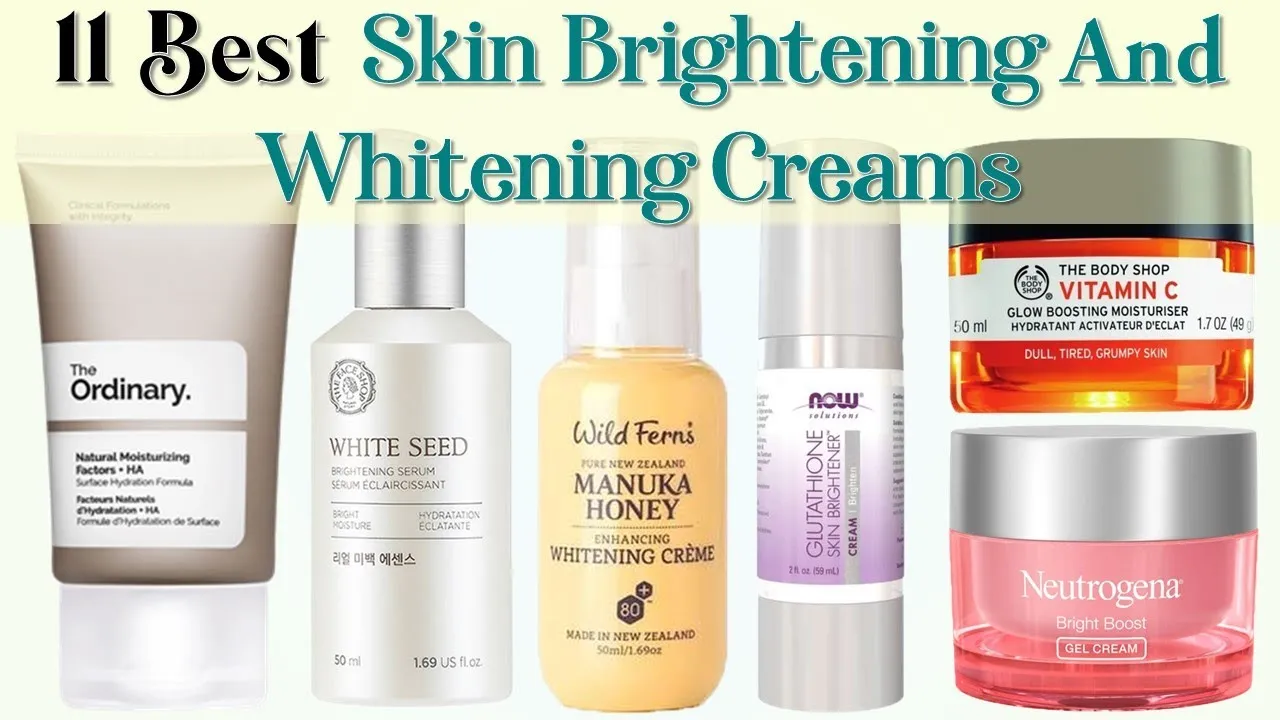Understanding Whitening Creams and Their Impact
Whitening creams have become increasingly popular in Pakistan, with many individuals seeking to address concerns about uneven skin tone, dark spots, and hyperpigmentation. These creams work by reducing the production of melanin, the pigment responsible for skin color. However, it’s crucial to understand the potential impact of these products on your skin. The impact can range from subtle changes to significant improvements in skin appearance. It is essential to approach the selection and usage of whitening creams with knowledge and caution, ensuring the chosen product aligns with your skin type and specific needs. Understanding the fundamental processes involved in skin whitening is the first step in achieving safe and effective results.
Many people in Pakistan, and around the world, desire a brighter, more even complexion, and whitening creams offer a convenient solution. They often contain ingredients that interfere with the enzyme tyrosinase, which is key in melanin production. This leads to a reduction in pigment and a lighter skin tone over time. However, the effectiveness and safety of these creams can vary greatly, depending on the active ingredients, concentration, and overall formulation. Different skin types and tones respond differently to various formulations, underscoring the need for careful consideration and informed choices before incorporating a whitening cream into your skincare routine. Proper research and consultation with a dermatologist can help navigate the complex world of skin whitening and minimize potential risks.
What to Look for in a Whitening Cream
When choosing a whitening cream, it’s essential to focus on the ingredients and their potential benefits for your skin. Look for products that contain proven and safe ingredients, such as vitamin C, niacinamide, and kojic acid. Vitamin C is a potent antioxidant that can brighten skin and protect it from environmental damage, while niacinamide helps to reduce inflammation and improve skin texture. Kojic acid is a natural compound derived from fungi that inhibits melanin production. These ingredients are generally considered safer alternatives to more aggressive chemicals like hydroquinone. Make sure that the cream is suitable for your skin type, whether it’s oily, dry, or sensitive, as formulations vary in their potential to cause irritation or other adverse reactions.
Check the product’s label for a complete list of ingredients and consider the concentration of active compounds. Higher concentrations are not always better and may lead to increased risk of side effects. The formulation of the cream is also important. Look for a cream that is non-comedogenic and free from harsh chemicals, such as parabens and sulfates. A well-formulated cream will also include moisturizing ingredients to keep the skin hydrated, helping to prevent dryness and irritation. Additionally, consider the brand’s reputation and customer reviews. Researching the brand and reading feedback from other users can provide valuable insights into a product’s effectiveness and any potential drawbacks. Opting for a reputable brand that offers transparency about its ingredients and manufacturing processes is a wise choice.
Ingredients to Avoid for Safe Whitening

Several ingredients commonly found in whitening creams pose potential risks and should be avoided. Hydroquinone is a powerful skin-lightening agent that can lead to serious side effects, including ochronosis, a condition that causes the skin to turn a bluish-black color. It can also cause skin irritation, redness, and increased sensitivity to the sun. The use of hydroquinone is often restricted or regulated in many countries, and it’s important to check the product’s label to ensure it is not present. Mercury is another dangerous ingredient that should be avoided. It is a toxic metal that can cause severe health problems, including kidney damage and neurological issues. Many countries have banned the use of mercury in cosmetics, but it can still be found in some unregulated products, especially those imported from other countries.
Corticosteroids, such as hydrocortisone, are sometimes added to whitening creams to reduce inflammation, but their long-term use can thin the skin, leading to issues such as easy bruising, stretch marks, and increased susceptibility to infections. Always review the ingredient list carefully, and be cautious of products that make unrealistic claims or promise rapid results. If you are uncertain about any ingredient, consult with a dermatologist before using the cream. Furthermore, be wary of products sold in unmarked packaging or from unknown sources, as these may not undergo the necessary safety testing and quality control. Prioritizing safety and health means avoiding potentially harmful ingredients and choosing products that have a proven track record of safety and effectiveness.
Hydroquinone Free Whitening Creams Explained
Hydroquinone-free whitening creams are a safer alternative to traditional products that contain this potentially harmful ingredient. These creams use a combination of alternative ingredients that work to lighten the skin and reduce the appearance of dark spots without the risks associated with hydroquinone. Popular ingredients include vitamin C, kojic acid, niacinamide, and alpha arbutin. These ingredients are generally considered to be gentler on the skin and have fewer potential side effects. They often work by inhibiting the production of melanin, the pigment responsible for skin coloration, or by promoting skin cell turnover to reveal a brighter complexion.
The effectiveness of hydroquinone-free whitening creams can vary depending on the specific ingredients and concentrations used, as well as the individual’s skin type and the severity of the hyperpigmentation. While they may take longer to show results compared to hydroquinone-based creams, they are a safer and more sustainable option for long-term use. It is important to be patient and consistent with the application, as results typically appear gradually over time. When choosing a hydroquinone-free cream, it’s essential to look for products that have been clinically tested and proven to be effective. Always read the product label carefully and follow the instructions for use. If you have any concerns or questions, consult with a dermatologist to determine the best product for your skin.
Top Whitening Cream in Pakistan with Safe Ingredients
Identifying the best whitening cream in Pakistan involves considering products that prioritize safety and effectiveness. Look for creams that are formulated with ingredients known for their skin-lightening and brightening properties, such as vitamin C, niacinamide, and kojic acid, while avoiding harmful substances like hydroquinone and mercury. It’s crucial to research the brand’s reputation and read customer reviews to gauge the cream’s performance and potential side effects. Prioritizing products from reputable companies that offer transparency about their ingredients and manufacturing processes ensures a safer and more effective experience. Consulting with a dermatologist for personalized recommendations is also helpful, as they can assess your skin type and recommend products best suited for your specific needs and concerns.
Some of the top-rated whitening creams in Pakistan often highlight these safe and effective ingredients in their formulations. These creams are designed to gently lighten the skin and reduce the appearance of dark spots, uneven skin tone, and hyperpigmentation without causing irritation or adverse effects. When selecting a cream, consider the overall formulation, ensuring it is non-comedogenic and free from harsh chemicals, and check for moisturizing ingredients that can keep the skin hydrated. This approach will enhance the effectiveness of the cream and promote overall skin health. Reading about these top whitening creams on various online platforms and beauty blogs can provide valuable insights into how well these products are regarded by the users.
Whitening Cream and Its Side Effects

While the goal of whitening creams is to improve skin appearance, it is essential to be aware of potential side effects. Some of the common side effects include skin irritation, redness, and itching, especially when using products that contain harsh chemicals or high concentrations of active ingredients. These reactions can be a sign of sensitivity or an allergic reaction, so it is important to discontinue use if they occur. Some whitening creams can also cause dryness, flakiness, and increased sensitivity to the sun. This is why it is vital to always use sunscreen with a high SPF when using these creams, to protect the skin from further damage.
More serious side effects can include ochronosis, which is a darkening of the skin, and contact dermatitis, which causes the skin to become inflamed and itchy. Hydroquinone is a known culprit for causing these conditions, emphasizing the importance of using hydroquinone-free products. Long-term use of some whitening creams can also lead to thinning of the skin, making it more vulnerable to damage and premature aging. Always perform a patch test before applying any new whitening cream to a large area of skin. Applying a small amount of the product to a discreet area, like the inner arm, and waiting for 24-48 hours to monitor for any adverse reactions can help. It is crucial to consult a dermatologist if you experience any persistent or severe side effects.
How to Choose the Right Whitening Cream
Choosing the right whitening cream involves a thoughtful approach that considers both the ingredients and your skin type. Begin by identifying your skin type. Whether it is oily, dry, sensitive, or combination skin, different formulations will be suitable for your needs. For example, individuals with oily skin may benefit from lighter, oil-free creams, while those with dry skin may need richer, more hydrating formulas. Carefully review the ingredient list, and focus on products that contain safe and effective ingredients like vitamin C, niacinamide, kojic acid, and alpha arbutin, and avoid those with hydroquinone, mercury, and strong corticosteroids.
Consider the product’s formulation and the brand’s reputation. Opt for non-comedogenic products free from harsh chemicals such as parabens and sulfates, and always prioritize well-known brands that are transparent about their ingredient lists and manufacturing processes. Before applying any new cream to your entire face, conduct a patch test on a small area of your skin to check for any adverse reactions. Start with a low concentration of active ingredients and gradually increase the strength as your skin adjusts. Always follow the product’s instructions for use and be consistent with your application. Also, if you are still unsure about the suitability of a particular product, consulting a dermatologist will provide you with personalized recommendations tailored to your specific skin concerns.
Consulting a Dermatologist on Whitening
Consulting a dermatologist is an invaluable step in safely and effectively using whitening creams. A dermatologist can assess your skin type, identify specific concerns, and recommend products tailored to your needs. They can evaluate your skin for any existing conditions, such as eczema or rosacea, which may be affected by whitening treatments. They can also help you understand the risks and benefits of different ingredients and guide you in making informed decisions. The dermatologist can also help you understand potential side effects and monitor your skin’s response to the cream.
During your consultation, the dermatologist will be able to discuss your goals for skin whitening and create a personalized plan that suits your lifestyle and skin sensitivity. They may recommend specific products, concentrations, and application methods. The dermatologist can also provide professional advice on complementary skincare practices, such as sun protection, which is essential for maintaining the results of whitening treatments and preventing further damage. Regular follow-up appointments allow the dermatologist to assess the cream’s effectiveness and make adjustments as needed, ensuring you achieve your desired results while minimizing any potential risks. The dermatologist’s expertise is paramount for achieving safe and successful skin whitening outcomes.
Application and Usage for Best Results

Proper application and consistent usage of whitening creams are crucial for achieving the best results. Always start by cleansing and drying your face before applying the cream. This helps the product to absorb effectively. Follow the product’s instructions, and apply a thin layer of the cream to the affected areas, such as dark spots or uneven skin tone. Avoid applying the cream to areas where it is not needed, as this can potentially lead to uneven lightening. Most whitening creams are designed for nighttime use, as this is when the skin repairs itself. If the cream is suitable for daytime use, be sure to follow the instructions and incorporate sunscreen with a high SPF into your routine to protect your skin from sun damage.
Consistency is key when using whitening creams. It may take several weeks or months to see noticeable results, and patience is essential. Regularly apply the cream as directed, and do not skip applications unless you have any adverse reactions. In addition to using the cream, incorporate other skincare practices that can enhance the results. This includes using gentle cleansers, exfoliating regularly, and avoiding harsh skincare products. A healthy diet and lifestyle also play a role in skin health. Make sure to drink plenty of water, get enough sleep, and avoid smoking and excessive alcohol consumption. If you don’t see the results you expect, or if you experience any adverse reactions, consult with a dermatologist for expert advice and adjustments.
Whitening Cream Pakistan where to buy safely
Finding a safe place to buy whitening creams in Pakistan is essential for ensuring product authenticity and minimizing health risks. Opting to purchase from reputable pharmacies, dermatologists’ clinics, and well-known online retailers is the safest approach. These sources are more likely to offer genuine products that have been stored correctly and are less likely to contain harmful ingredients. Always check for the product’s expiration date and any visible signs of tampering or damage. Be cautious of buying from unverified online sellers or street vendors, as these products may not undergo proper quality control and could be counterfeit.
Before making a purchase, research the brand and product and read customer reviews to assess its effectiveness and safety. If possible, consult with a dermatologist to get personalized recommendations on where to buy the most suitable whitening cream for your skin type and concerns. They can guide you towards trusted sources and help you to avoid potentially harmful products. Prioritize products that are approved by the relevant regulatory bodies in Pakistan, such as the Drug Regulatory Authority of Pakistan (DRAP). When you buy from a trusted source, you can be confident that the product meets the necessary safety and quality standards, minimizing any risk of side effects and maximizing the benefits. This ensures you are not only improving your skin but also protecting your health.
